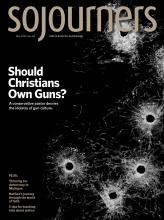MOST OF OUR HOLY DAYS have been colonized. The commercialization of Christmas and Easter is not quite evil, but it is certainly an obstacle to deepening one’s faith.
Pentecost, however, we have all to ourselves. No one has figured out how to market it, perhaps because we Christians have so deemphasized it compared to our other great feasts. The Holy Spirit has sometimes been spoken of as the “shy” person of the Trinity. She’s always pointing to Jesus. The Spirit is fine to let Jesus have all the attention.
But what a feast to have all to ourselves! One in which all nations are drawn to worship Zion’s God. This flood of peoples is long promised in Israel’s scripture and is now made good by Christ’s Spirit.
North American culture continues to wrestle with racial politics. William Barber speaks of these days as a Third Reconstruction, after prior ones that arrived with Emancipation in the 1860s and the civil rights movements in the 1960s. This Third Reconstruction era includes #BlackLivesMatter, immigration, and struggles for citizenship wrestling against the demagogic, bloviating “No!” of politicians.
In all this, Pentecost says, “Yes.” I’m tempted to say “quietly,” but this yes is not quiet. It’s a hurricane. It’s followed by a sermon all listeners can hear in their own language. Even if the disciples can’t speak all those languages, God can. God made all nations. God called Israel to be God’s light and bride. And now, through Jesus, God is drawing all God’s beloved peoples again. The church must show this in our life together.
And (don’t forget this!) those from all nations have to die to ourselves and be raised in Christ’s image. God is speaking, church! All we have to do is join in.
Read the Full Article

